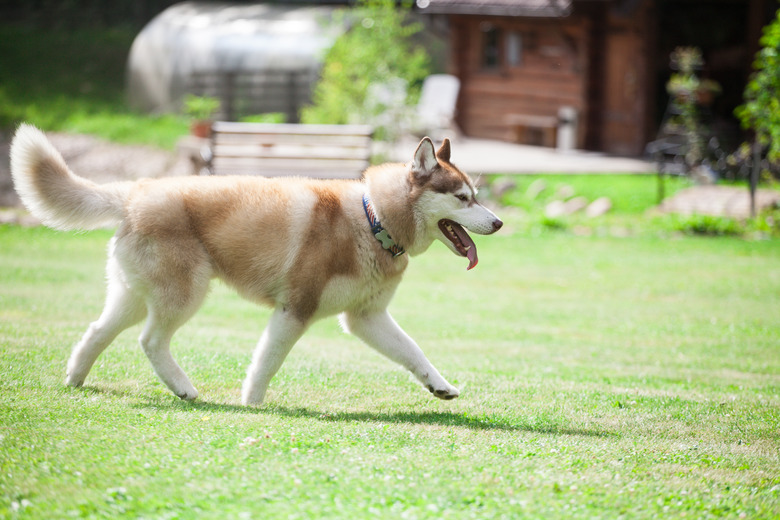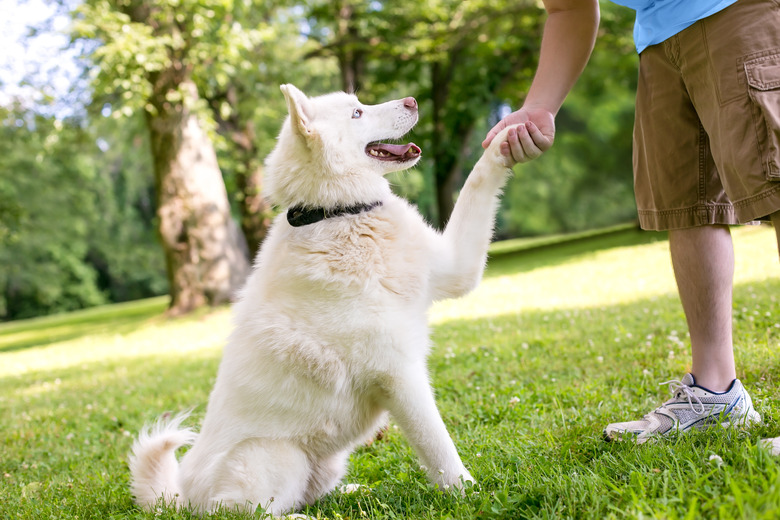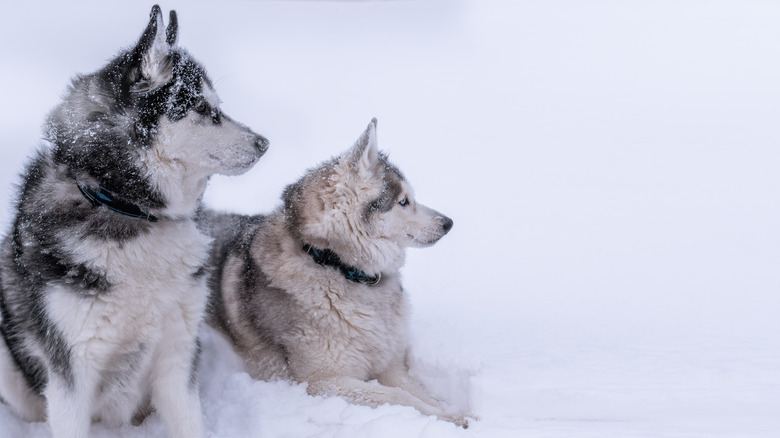How To Stop Diarrhea In Siberian Huskies
Most dogs, including Siberian huskies, will go through bouts of diarrhea. The condition has many causes, from a food that was eaten to certain viruses, and some more serious causes as well. Call your veterinarian if your husky's stool is still abnormal or worsens after 48 hours.
Diarrhea vs. normal husky stool
Diarrhea vs. normal husky stool
Diarrhea is defined as loose or unformed stools that occur more often than the dog's normal elimination habits. When fecal material moves faster than usual through the intestinal tract, and less water and nutrients are absorbed, diarrhea is the result.
If your husky is asking to go outside more than usual, diarrhea may be the reason. You could follow your dog outside to see if your husky's poop is diarrhea; normally, though, you are not left to wonder about this because dogs may not make it outside in time when they are experiencing diarrhea, so you will see the loose, watery stools inside, too.
Diarrhea from dogs that eat things they shouldn't
Diarrhea from dogs that eat things they shouldn't
Siberian huskies are a generally healthy dog breed, although they are prone to eye issues and hip dysplasia. Like other large breeds, they can develop bloat, which is a twisting of the stomach that can be life-threatening, but diarrhea is not a typical symptom of bloat. Siberians are not particularly known for other digestive issues.
They are, however, a curious and somewhat mischievous breed that can get bored easily. Since dogs in general have been known to eat almost anything in their paths, Siberians may also do this, and experience diarrhea as a result.
Other causes of diarrhea in huskies
Other causes of diarrhea in huskies
Viruses and many types of worms or other parasites can also cause diarrhea; so can a change in diet or medications, especially as their bodies are adjusting to it. If diarrhea persists, your veterinarian will want to determine if the cause could be more serious, like cancer or other diseases.
What to report to your veterinarian
What to report to your veterinarian
Before calling your veterinarian, assess your dog for any other signs that might indicate an illness. Take his temperature using a rectal thermometer inserted into the anus. Of course, this can be difficult and especially unwelcome when your dog has diarrhea.
A dog's normal resting temperature is 101.5 to 102.5F, so veterinarians consider a temperature of 103 or higher to be a fever. Be prepared to tell your veterinarian the dog's temperature as well as any other signs of illness such as vomiting, loss of appetite, and lethargy.
Check your dog's stool for any sign of worms, like anal licking and scooting his butt on the carpet due to itching. If worms are suspected, ask your veterinarian about prescribing a worm medication. It is best not to give OTC medications for the diarrhea unless your veterinarian advises you to do so.
Caring for your Siberian husky with diarrhea
Caring for your Siberian husky with diarrhea
Dehydration is a threat during a bout with diarrhea, so supply an adequate amount of fresh water at all times. Watch carefully to make sure she is drinking. While veterinarians used to advise withholding food for a 24-hour period to allow the dog's digestive tract to rest, this is no longer practiced.
Offer a bland diet consisting of mild foods such as boiled chicken, baked potato, and cooked rice. Adding up to one tablespoon of pumpkin (without spices) to their food can help dogs become regular again. Do not give foods containing dairy such as cottage cheese, as many dogs are lactose intolerant and may get diarrhea from it.
As your dog's diarrhea subsides, resume feeding him his regular diet, initially offering small amounts mixed with the bland diet. Gradually decrease the bland diet ratio until your dog is once again fully on his regular food.
Cleaning up after dog diarrhea
Cleaning up after dog diarrhea
It's important to clean up diarrhea promptly and thoroughly. Disinfect the dog's sleeping area often when he has diarrhea. Keeping his bedding and surrounding area clean is crucial to preventing any continual exposure to bacteria or worms.
Call your veterinarian if your husky's diarrhea doesn't improve or new symptoms appear.


